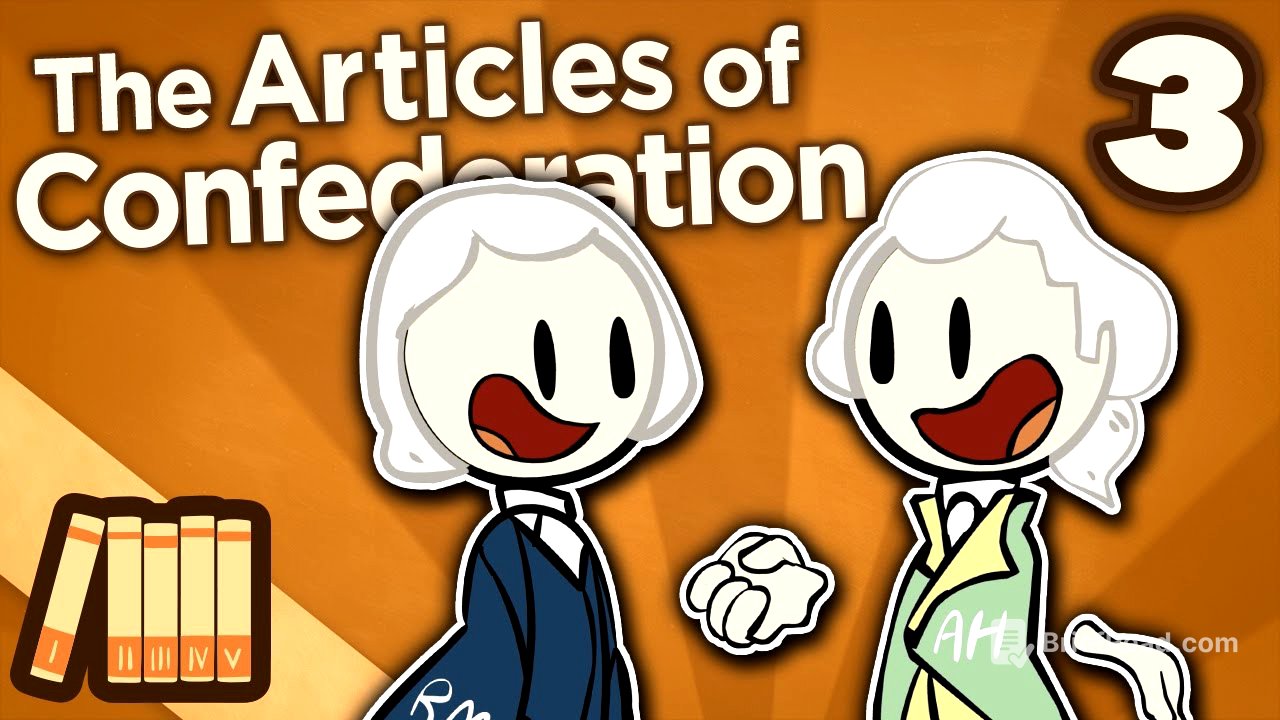TLDR;
This video tells the story of Robert Morris, the "Financier" of the American Revolution, and his struggle to fund the Continental Army. Despite his efforts to establish a national bank, create a stable currency, and implement a national tax, Morris faced significant challenges due to the states' reluctance to pay taxes and the Articles of Confederation's limitations. The video highlights the tension between the states and the Confederation Congress, culminating in a potential coup d'état by the unpaid Continental Army. Ultimately, George Washington's leadership and the soldiers' loyalty to him prevented a civil war, but the financial crisis persisted, leading to Morris's resignation and the eventual collapse of the Confederation.
- Robert Morris, the richest man in America, was appointed Superintendent of Finance to address the Confederation Congress's financial woes.
- Morris faced resistance from the states, who were reluctant to pay taxes, and the Articles of Confederation's limitations on Congress's power.
- The Continental Army, facing unpaid wages, threatened a coup d'état, but George Washington's leadership and the soldiers' loyalty to him prevented a civil war.
- Despite Morris's efforts, the financial crisis persisted, leading to his resignation and the eventual collapse of the Confederation.
The Financier [0:00]
The video begins by outlining the financial struggles of the Confederation Congress during the American Revolutionary War. Despite the war's continuation, Congress was bankrupt, lacking the resources to fund a national army. The Articles of Confederation, which governed the newly formed United States, lacked a strong central leadership, with the President of Congress having limited power. This led to a lack of direction and a reluctance among states to contribute financially.
Robert Morris: The Richest Man in America [0:17]
Recognizing the need for a strong financial leader, Congress appointed Robert Morris, the wealthiest man in America, as Superintendent of Finance. Morris, known as "The Financier," had a proven track record in business and had already been secretly supporting the war effort through his merchant fleet, secret deals with the French, and a spy network. However, Morris was hesitant to accept the position, knowing the unpopularity of taxes and the challenges of convincing the states to contribute.
The Tax Amendment [1:29]
Morris's primary goal was to establish a national tax on imported goods, which would provide a steady source of income for the Confederation Congress. This idea, similar to the British Parliament's Stamp Act that sparked the Revolution, required a unanimous vote from all 13 states to amend the Articles of Confederation. Despite securing the support of 12 states, Rhode Island and Virginia ultimately rejected the proposal, crippling Morris's efforts.
The Continental Army's Crisis [3:45]
The lack of funding for the Continental Army, coupled with the states' reluctance to pay their debts, led to a dire situation. Despite the victory at Yorktown, which forced the British to begin peace negotiations, the army remained unpaid. Morris, unable to continue funding the army from his own pocket, was forced to stop payments, leaving the soldiers in a desperate situation.
The Coup d'état [6:58]
The unpaid soldiers, facing financial ruin and imprisonment for their debts, began to murmur about an insurrection. They demanded immediate payment from Congress and threatened to rebel if the army was disbanded. This threat of a coup d'état, coupled with the states' continued reluctance to support the army, highlighted the fragility of the newly formed nation.
Washington's Intervention [8:12]
George Washington, aware of the army's unrest, received a warning from Alexander Hamilton about the brewing conspiracy. He scheduled a meeting with his soldiers on March 15th, the Ides of March, the day Julius Caesar was assassinated. Washington, in a powerful speech, condemned the conspiracy and reminded his soldiers of their loyalty to the Republic. His words, coupled with his personal sacrifices for the cause, swayed the soldiers, preventing a civil war.
The Collapse of the Confederation [9:29]
Despite the averted crisis, the financial problems persisted. The tax amendment failed again, and Robert Morris resigned, leaving the Confederation Congress in a precarious position. The video concludes by foreshadowing the eventual collapse of the Confederation, highlighting the challenges of establishing a strong central government and the importance of financial stability for a nation's survival.









